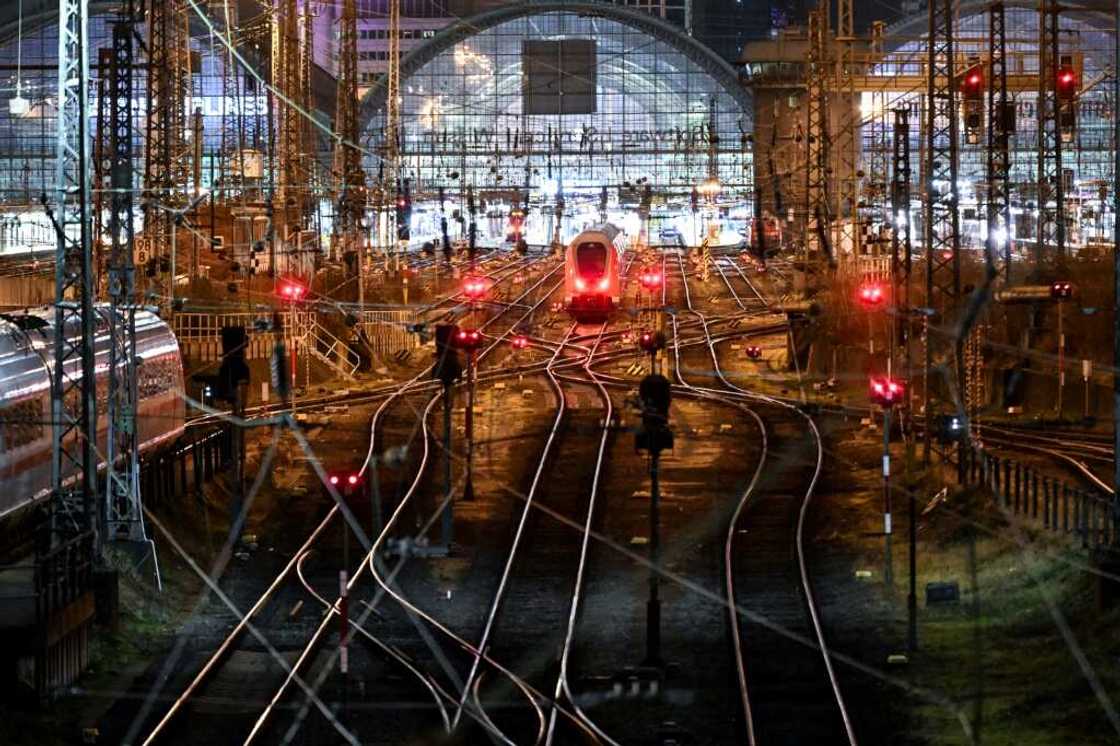Strike-hit German rail operator agrees to 35-hour week

Source: AFP
German rail operator Deutsche Bahn said on Tuesday it had agreed with the GDL union to shorten train drivers' working week, ending a months-long row that caused strikes across the country.
"It was a difficult road," Deutsche Bahn's human resources director Martin Seiler said at a Berlin press conference. "But in the end we were able to reach an intelligent compromise."
From 2026, the standard working week will be gradually reduced from 38 hours to 35 hours by 2029 -- at full pay.
Train drivers will, however, have the option of working more if they want to, up to 40 hours per week, at 2.7 percent more salary per additional hour.
"Our colleagues can decide for themselves which weekly working hours suit them and their lifestyle best," Seiler said.
He called it a "modern" solution that would bring "flexibility" to the profession, at a time when Germany is grappling with a shortage of skilled labour.
As part of the deal, workers will also receive a wage hike of 420 euros ($455) per month in two stages and a one-off payment of 2,850 euros to help compensate for inflation.
Cost of living
The agreement brings an end to a bitter dispute between the operator and the GDL union which led to six rounds of walkouts since November 2023, causing travel misery for thousands of passengers and disrupting freight traffic.
"We've done it," GDL boss Claus Weselsky said at a press conference.
"We regret that passengers have been so affected by our strikes," he said, adding: "This dispute should not have been as long or as hard as it was."
The agreement will run until the end of 2025 and both sides have ruled out any further strike action for nearly two years.
"This is a huge relief for passengers," said Detlef Neuss, chairman of ProBahn passenger lobby group.
He welcomed the outcome of the talks, which should help make shift work more attractive to prospective train drivers.
"You can't get new staff without better working conditions," he told the Rheinische Post newspaper.
Germany, Europe's largest economy, has been affected by strikes across a wide range of sectors in recent months, including air travel, public transport, the civil service and supermarkets.
Pinched by inflation following the war in Ukraine and the coronavirus pandemic, workers have been demanding higher wages to cope with shrinking purchasing power.
The strikes added to an already gloomy economic picture, with the German economy shrinking 0.3 percent in 2023.
A modest recovery is expected to get under way this year.
Deutsche Bahn, which made a net loss of 2.35 billion euros in 2023, said last year's walkouts alone cost it some 200 million euros.
PAY ATTENTION: Unlock the best of Legit.ng on Pinterest! Subscribe now and get your daily inspiration!
Source: AFP




